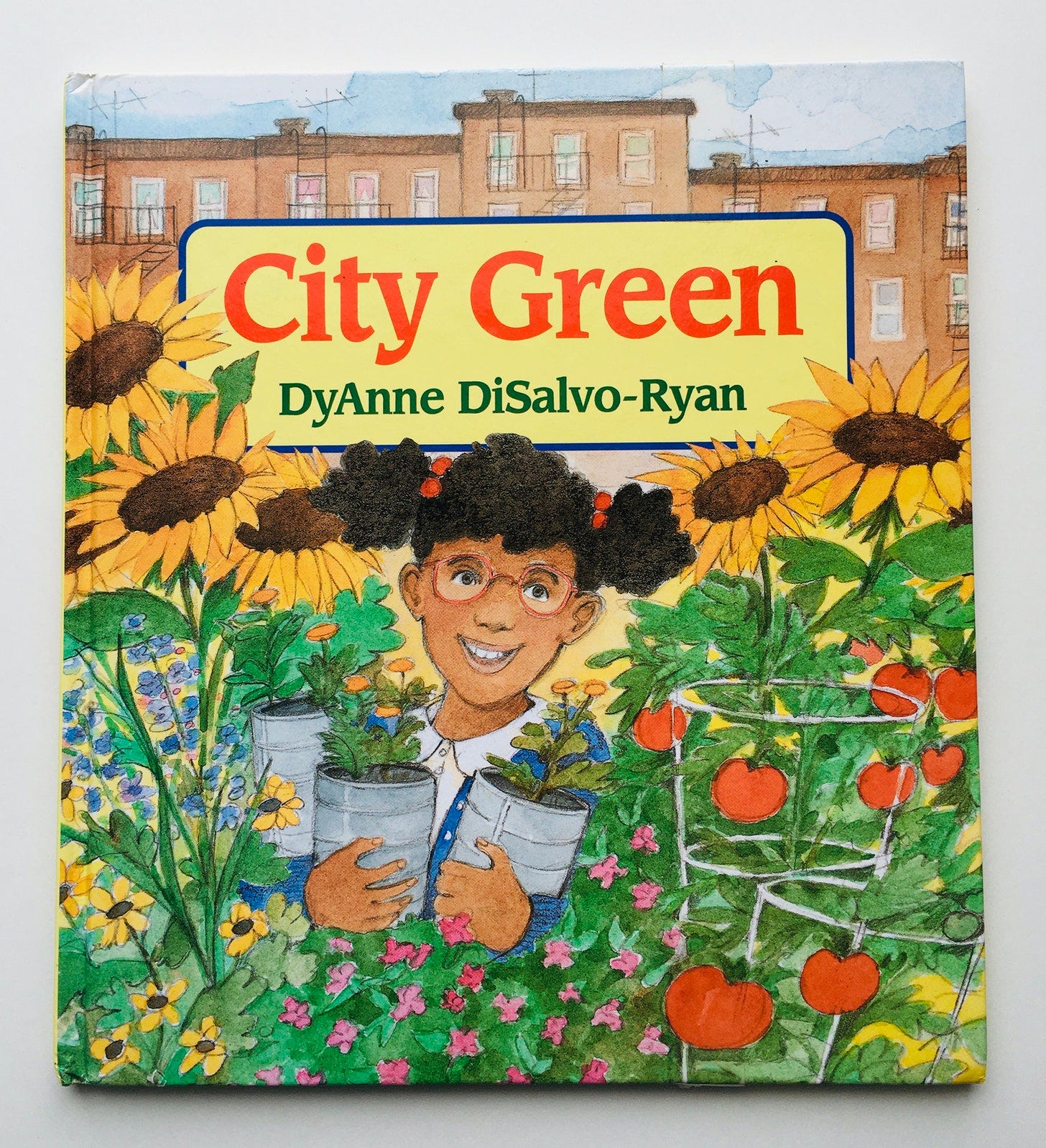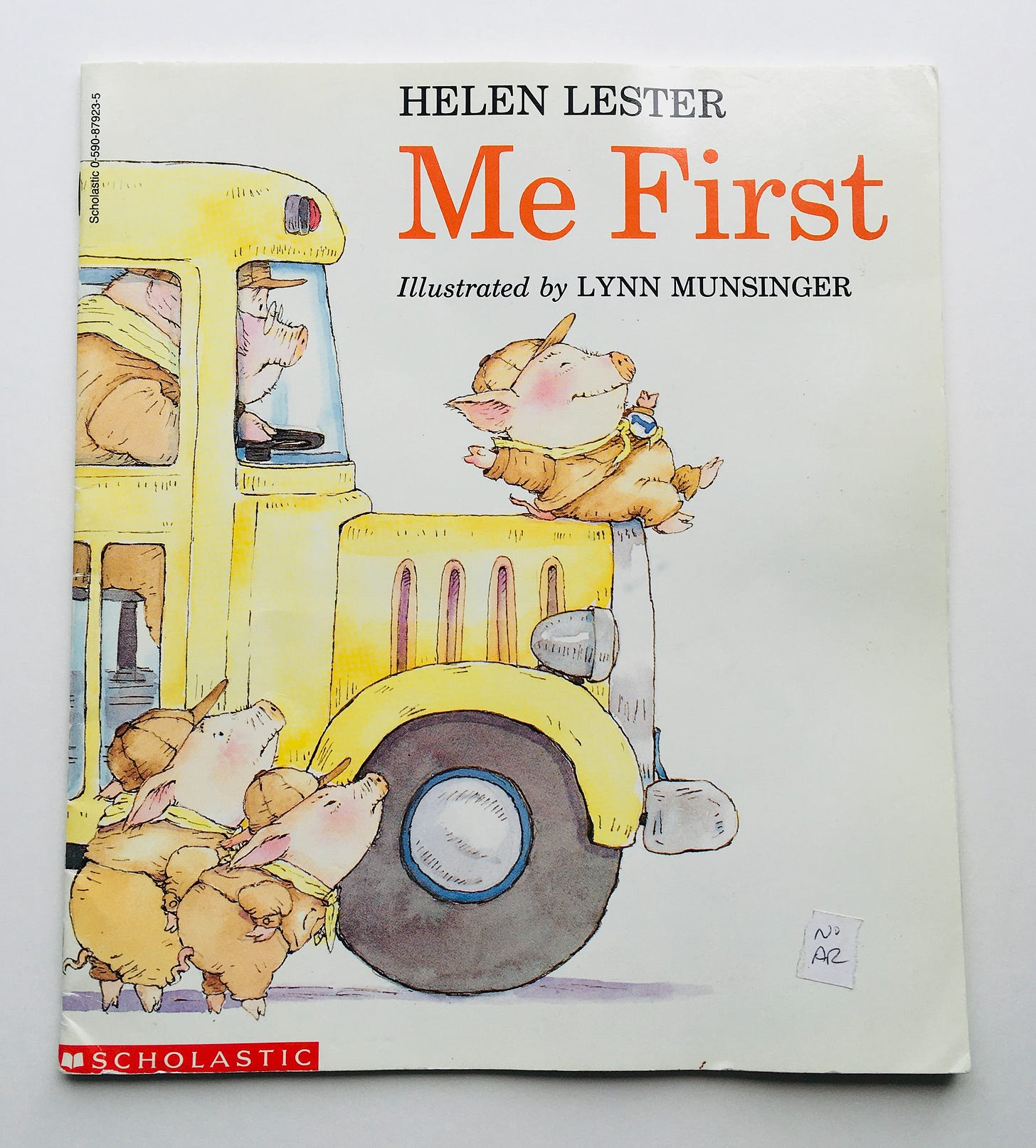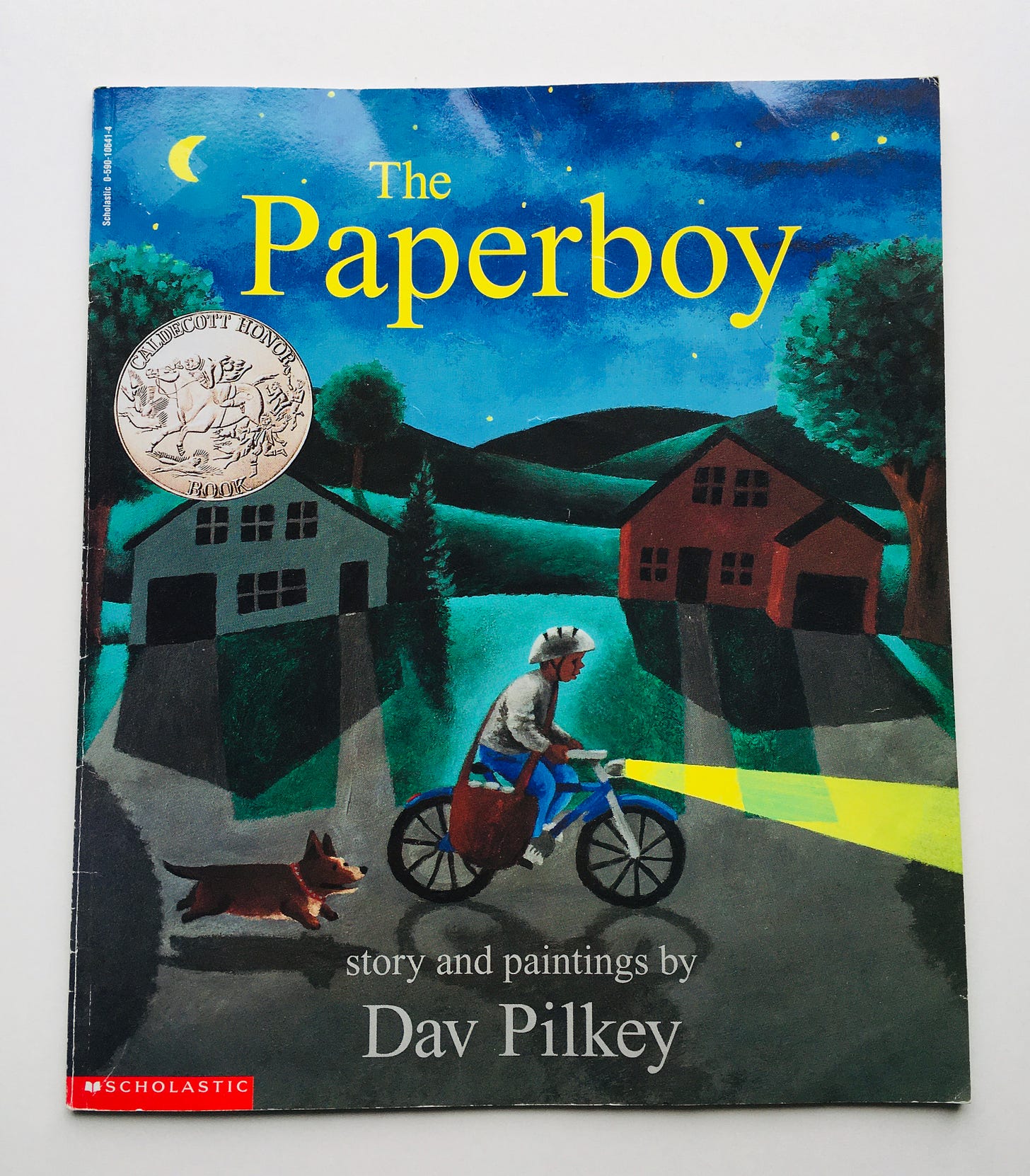Good morning! ☀️
I am deep in hibernation mode, literally and figuratively, which is one of the hardest and best parts of January — as slow as my life ever gets, alongside the eternal struggle to honor my energetic cycles and allow myself to rest. I have had very little interest in doing much of anything and even less motivation to do it, beyond the basics that keep me sane.
In the past, I have gotten spun up about these periods — full of fear that I’ll never create anything again, convinced that no new ideas will come, deep in the depths of the lie that I will never again experience the joy of being absorbed in, much less delighted by, any project, ever. (Typing this out makes me chuckle a little — so dramatic — but there is also a small echo chamber up top that at the same time reverberates, “Never again, never again, never again.” It’s fascinating to me, the patterns our brains fall into and then follow, even when we can objectively see ourselves on that false path.)
I put a note in the header here — which will repeat a few times — that this newsletter is going on hiatus for the month of February. This was — and has been for the past few years — a planned break, one that coincides with the beginning of the most intense period of my year at work, in my career, but also one that I find I need pretty desperately by this time, here.
But it also aligns with where I am, energetically and emotionally — deep in a hollow log with a bear, or in a rock crevice with the bats, in a horrifying hibernaculum with a pile of cold snakes. (Unsurprisingly, Unsplash — the stock photo service connected to Substack — doesn’t have any results for hibernacula, which is disappointing but also okay, because they are truly stomach-turning. Google Image it.)
If you are here too — hibernating, in whatever form that takes for you — please know that you have permission. (You don’t need permission, by the way.) We might not reward it, as a culture, the hibernation — and we might even personally believe we’re only of value if we’re productive, banging out our to-do lists endlessly, constantly going and doing — but it’s part of the creative process, not to mention the cycle of being human, to overwinter, no matter the season.
Whatever story you’re telling yourself — whatever never again you’re up against — remember that life is surprising, and only rarely turns out the way we expect it to, and you — with your (and my) endlessly lovely but ultimately limited little human brain — never know, cannot know, all the good that’s coming next. So go down deep and stay there, but don’t for a second believe’s it’s forever, or that you won’t emerge at some point, into new light.
Annie and the Wild Animals by Jan Brett
Flora and Ulysses by Kate DiCamillo (this is our current audiobook in the car)
Give Me Back My Dad by Robert Munsch
Rabbit’s Snow Dance: A Traditional Iroquois Story by Joseph and James Bruchac (I reviewed this in my 2021 special edition on winter)
I originally published this post on March 22, 2022. I’ve edited and updated it here.
Mini issue: Values
I can’t remember where I first came across the idea of reading books based on values — my guess is that it was the book, Tender Topics: Picture Books About Childhood Challenges by Dorothy Stoltz, Elaine Czarnecki, and Buff Kahn, which I borrowed from my local library (and enjoyed).
And while I do like the idea — I could hardly be an advocate for connecting everything to reading and reading to everything if I didn’t believe in doing this for my own principles, could I? — I despise the current trend in the publishing industry of producing books heavy on message but short on child appeal. (I often feel that many titles published today are for grownups, not young children, and the results are heavy-handed and extremely annoying.)
And yet: in Books That Build Character: A Guide to Teaching Your Child Moral Values Through Stories, authors William Fitzpatrick and Gregory and Suzanne M. Wolfe write:
We think many parents want books for their children that are not simply a good read but good in the other sense of the word — books that not only capture the imagination, but cultivate the conscious as well.
Such books bestow a double blessing. They provide hours of pure pleasure. They also provide good companions. They introduce your child to friends who are a little older, a little wiser, a little braver. Along with these companions, your child gets to ask some tough questions. Is Long John Silver good or bad? Should Beauty keep her promise to Beast? Should Frodo continue on his seemingly doomed mission while there is still a chance to return to the safety of the Shire? These are not easy questions to answer, especially when time is running out or the edge of the cliff is crumbling underfoot, but they are the kind of questions with which we are all confronted sooner or later. And when they come, they often come in situations in which we have little time to think or at times when we may be angry, fearful, or just plain exhausted. It’s exactly at times like this that the half-forgotten memory of a story can rise to our aid.
Okay.
It can be true that:
There are far too many overtly didactic, moralistic books out there.
AND, some wonderful picture books manage to impart values while also telling a great story that’s enjoyable and compelling for children.
The latter is what I’m focusing on here.
If I’ve reviewed any of these titles, I’ve included a link. And this list is, of course, not exhaustive for either books or values — undoubtedly I’m overlooking many in both categories.
If you have books or values to add, leave a comment! (In fact, I’ve purposely left some categories on the thin side in hopes that we can collectively flesh this list out.)
Community
It Takes a Village by Jane Cowen-Fletcher
Islandborn by Junot Diaz
City Green by DyAnne DiSalvo-Ryan
The All-Together Quilt by Lizzy Rockwell
Compassion and empathy
The Rabbit Listened by Cori Doerrfield
The Hundred Dresses by Eleanor Estes
A Sick Day for Amos McGee by Philip C. Stead
Cooperation
Raven and the Tide Lady by Pauline Duncan
Quill Soup by Alan Durant
Swimmy by Leo Lionni
The Ying-Yang Sisters and the Dragon Frightful by Nancy Tupper Ling
Boxitects by Kim Smith
Courage
The Tunnel by Anthony Browne
Jabari Jumps by Gaia Cornwall
The Cats in Krasinski Square by Karen Hesse
Outside Over There by Maurice Sendak
Do Not Open by Brinton Turkle
Determination, commitment
Mike Mulligan and His Steam Shovel by Virginia Lee Burton (also Katy and the Big Snow by the same author)
Amazing Grace by Mary Hoffman
Brave Irene by William Steig
Fairness
Me First by Helen Lester
The Little Red Fort by Brenda Maier
Family
Full, Full, Full of Love by Trish Cooke
Rise and Shine, Mariko-Chan! by Chiyoko Tomioka
Let’s Eat by Ana Zamorano
Eating Up Gladys by Margot Zemach
Forgiveness
Under the Lemon Moon by Edith Hope Fine
The Little Blue Bridge by Brenda Maier
Bravo Anjali! by Sheetal Sheth
The Three Little Wolves and the Big Bad Pig by Eugene Trivizas
Generosity, selflessness
The Spiffiest Giant in Town by Julia Donaldson
Dogger by Shirley Hughes
Tico and the Golden Wings by Leo Lionni
Thank You, Omu! by Oge Mora
The Star Child by Bernadette Watts
Gratitude
All of Me: A Book of Thanks by Molly Bang
Gracias · Thanks by Pat Mora
We Are Grateful: Otsaliheliga by Traci Sorrell
It Could Always Be Worse by Margot Zemach
Helpfulness
Alfie Gives a Hand by Shirley Hughes
Amos and Boris by William Steig
Honesty, trustworthiness
Harriet and the Garden by Nancy L. Carlson
The Empty Pot by Demi
The Honest-to-Goodness Truth by Patricia C. McKissack
Integrity
Ma’ii and Cousin Horned Toad by Shonto Begay
A Hen for Izzy Pippik by Aubrey Davis
The Smallest Girl in the Smallest Grade by Justin Roberts
One Little Chicken by Elka Weber
Kindness
Wilfred Gordon McDonald Partridge by Mem Fox
How Kind! by Mary Murphy
A Home for Bird by Philip C. Stead
The Lion and the Mouse by Rand Burkert
Loyalty
Hello Goodbye Dog by Maria Gianferrari
Chester’s Way by Kevin Henkes
Sophie’s Squash by Pat Zietlow Miller
Patience
Waiting by Kevin Henkes
Not Yet, Yvette by Helen Ketteman
The Carrot Seed by Ruth Krauss
Perseverance, grit
Nothing Stopped Sophie: The Story of Unshakable Mathematician Sophie Germain by Cheryl Bardoe
The Magical Yet by Angela DiTerlizzi
Izzy Gizmo by Pip Jones
Hana Hashimoto, Sixth Violin by Chieri Uegaki
Respect
Alejandro’s Gift by Richard Albert
We’re Different, We’re the Same by Bobby Jane Kates
Responsibility, self-reliance
Ida and the Wool Smugglers by Sue Ann Alderson
Strega Nona by Tomie dePaola
The Paperboy by Dav Pilkey
Pigsty by Mark Teague
Resourcefulness
Mrs. McNosh and the Great Big Squash by Sarah Weeks
The Dumpster Diver by Janet S. Wong
Service
Miss Rumphius by Barbara Cooney
A Castle on Viola Street by DyAnne DiSalvo
The Lady in the Box by Ann McGovern
Tolerance
Stinky by Eleanor Davis
Whoever You Are by Mem Fox
Strictly No Elephants by Lisa Mantchev
All Are Welcome by Alexandra Penfold
Do you have any values or books to add to this list? Help me grow it! (And don’t feel limited to picture books — I’d love to create a list with books for older readers.)
Read good books and take good care 😘
Sarah
P.S. All Bookshop.org links are affiliate ones — I receive a small commission if you make a purchase and trust me, this adds up, and I appreciate it.










Hey Sarah!! Would any of these be specifically good for a child in preschool who is struggling to regulate emotions! We are dealing with hitting at preschool and want to help at home with some books. But it’s hard to talk about and I can’t find many suggestions!
Whether the morals are heavy-handed or more entwined with compelling narrative as are the books on your list, it can be valuable to recognize that any story can never be completely values-neutral. Every story contains a certain worldview and is imbued with certain values (and if it didn't, why read it?). So it's a matter of choosing stories that impart the values and worldviews you hope to give your child, the values that you believe are necessary to having a good life. And as your child gets older, and chooses their own books, it's a matter of encouraging them to think critically about the values and worldviews presented to them, and which ones they want to adopt for themselves.